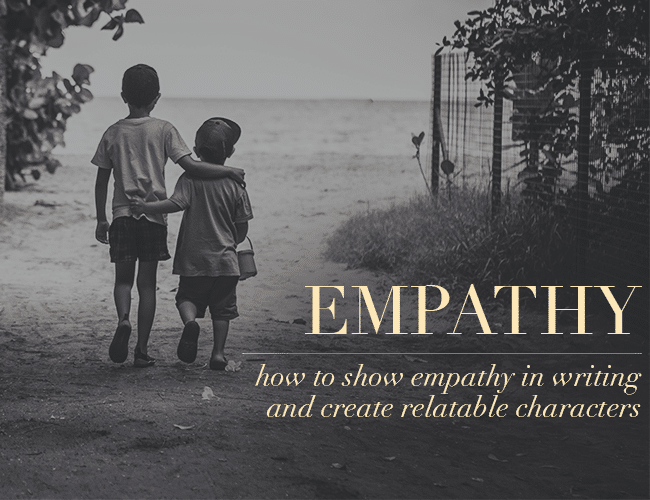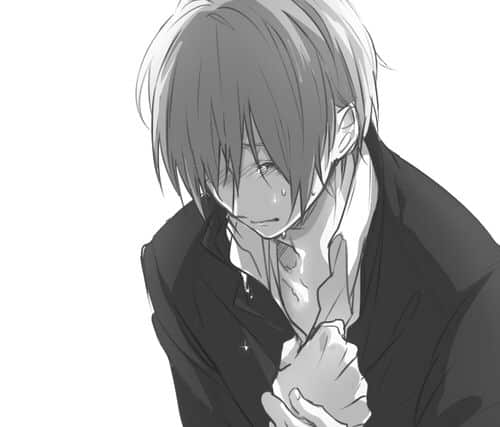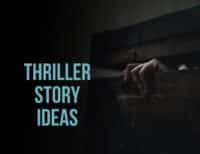Stories create empathy. Stories bring hope. Stories change history. Yes, even yours—especially when you know how to show empathy in writing.

While there are many serious examples of stories affecting human rights and other causes, I'm going to start my point with something simpler.
The Little Red Lighthouse
Not far from where I live is a little red lighthouse. Here it is:
It's cute, right? It's just a lighthouse. There's nothing special about it—except that the George Washington Bridge was built almost on top of it not long after it was completed, rendering it redundant.
For completely logical reasons, the Coast Guard decommissioned it and made plans to sell it or tear it down.
Ah, but that's not the end of the story!
In 1942, an author named Hildegarde H. Swift wrote an adorable children's book called The Little Red Lighthouse and the Great Gray Bridge that made the lighthouse into a character. This lighthouse did its job with joy, leading ships to safety in the worst of fogs. But then *gasp* the bridge was built overhead with enormous lights, and the lighthouse lost its purpose.
It struggled with feeling useless and unwanted, until one day, an enormous storm came, and the boats could not see the lights on the bridge. The little red lighthouse rediscovered its purpose as it once again led people safely through the storm, and came to the realization that though it was small, it still had a place in this world.
It's a great story, and it changed that lighthouse's fate. When the Coast Guard tried to auction it off, the locals who'd grown up reading that book made such an outcry that instead of being sold, the little red lighthouse was added to the National Register of Historic Places.
I don't think Ms. Swift intended that outcome when she wrote the story, but it still had that effect because it was relatable. Behold the power of empathy!
The Power of Empathy
When you write, you're writing from your barrel of experiences. Whenever you go through something, it ends up in that barrel—all your joy and pain, your fears and questions, your successes and your victories.
(This is actually one of the reasons older writers are sometimes better writers. It has nothing to do with talent. There's just more in the barrel to draw from.)
Your readers can relate to what you pull from your barrel because they have barrels of their own. Everyone does. Your readers can relate because they're human, too (presumably).
Quick demonstration. Ever wondered why anime, of all things, is so popular? Simple: even though Japan's culture is distinct from others around the world, the very human experiences of the characters speak to those who watch. For example:
- This fellow is sad. Clearly, obviously sad.
- Oh MY, she's angry.
- That's boredom, all right.
- This girl is happy. Can you tell?
Those expressions and feelings work across cultures because we're all human. We can relate to the experiences, even if we don't know the details. I, for one, have never dealt with fifty-foot robots, but I can relate to the sorrow of a friend's passing.
So how do you communicate this without a visual medium? Well . . . you have to pay attention.
How to Show Empathy: Your Barrel of Experience
Wondering how to show empathy in writing? Pro tip: Typing “He was so sad” does not work.
You have to draw from your barrel of experience.
- What physical sensations did you experience when you were sad/angry/bored/happy?
- What kind of thoughts did you have? Uncharitable? Overly gracious? Dismissive?
- How did your view of the people and world around you change as your emotions shifted?
When I'm sad, I feel alone, which usually leads to fear. When I'm angry, I often feel robbed, like justice isn't being done by those around me. When I'm bored, my mind wanders, landing on anything but what I'm supposed to be working on. When I'm happy, I want that moment to last forever, and smaller problems like chronic pain seem to shrink.
Do you get the picture? If your chest hurts when you're grieving, then your character's chest may hurt.
If you have trouble breathing when you're anxious, then maybe your character has trouble breathing when they're anxious.
When you're angry, do you have trouble controlling what comes out of your mouth? Your character may say the wrong thing at the wrong time.
We all know what it is to be angry and quiet or angry and loud; any emotion and its outward expression is something we all know well.
So do your readers.
Aim For the Experience, Not the Details
Let's say you're writing a bad guy. A really, really bad guy who robs and hurts people. You have (hopefully) had no experience with that, but you do know what he felt: greed, anger, a sense of entitlement, fear of being caught, a certainty that he had the right to do this thing. You can put those into the story to make him slightly more relatable.
You're a woman writing a male character? No problem. Men are people, too (shocking, I know), and experience the emotions you do, even if they show them differently: they can be unsure or overly certain, fearful or full of themselves, struggling with failure or relaxing in victory.
You're writing an alien creature? Awesome! You can still use your experience to establish this character, either by giving it relatable emotions or by drawing the contrast between them. For example, maybe the alien is standing over a freshly squished astronaut and not feeling victory, not feeling the fear of being caught, but instead nothing at all—which, by contrast, makes the alien more frightening to the reader.
Every human feels these things. They know the stomach-churning feeling that comes right before doing something that requires courage—whether that's speaking in front of a class or leaping out of a helicopter to fight in a war.
The Magic of Your Barrel
You want your story relatable? Share what's in your barrel.
It doesn't matter if you're writing on earth or in space, in ancient times or modern. Your readers don't have to have the same details to have the same experience, and as long as your characters' reactions echo your human readers' reactions, they will relate to your story.
Have you read something you could relate to recently? Do you have other tips for how to show empathy in writing? Let us know in the comments.
PRACTICE
It's time to practice writing relatable stories. Pick one scene from your WIP with some kind of emotional content, and take fifteen minutes to expand it with relatable emotional experiences.
Or, think of an emotional experience you had recently, and take fifteen minutes to write about what that felt like. What physical sensations did you experience? What thoughts did you have?
When you're done, share your writing in the comments. Be sure to leave feedback for your fellow writers, too!












So basically it explains that when am writing, I have to include the emotional feelings of what one feels.
There has to be something for the reader to relate to. You can show that by how your character responds to things, the choices they make, that sort of thing.
Empathy is about to understand and even share the feelings and emotions of someone else. While sympathy is the ability to feel for someone,
That’s correct, Danny! And empathy is the best thing for readers to have for your characters.
Showing emotion is great as long as you don’t overdo it. Be careful to not to tell them your main character is sad but show them, his quivering lips, the teardrops in his eyes.
Evil characters should always have a very good background, your story will stand or fall with the antagonist. If you have a bad guy that wants to kill off all the humans he should better have a reason for it.
Absolutely! Show, not tell, is generally the rule around here. 🙂
I agree 110%; I sometimes wonder how books get published when the authors write, “he was furious,” “fear crouched in her eyes,” etc on almost every page.
What a good exercise! Thank you, Ruthanne.
She pulled into a parking space at the local grocery store, turned off the engine, and forced herself to take a deep, slow breath. Head down, avoiding the possibility of eye contact, reluctance slowing her step, she entered the store and took a cart – the small size, never the large one, even after all these years. She had been desperately poor, struggled
to feed her children on never enough until even the thought of shopping made her ill. Now, she was wealthy enough to purchase anything here she wanted, yet the symptoms continued. She forced herself to stand up straight, to practice what she’d been taught, to confront her fear. She surveyed the wealth of fresh fruits and vegetables displayed. Aloud, she said, “Thank you, Lord.” It was supposed to help. But still, the memory of poverty choked her breath, her vision narrowed and, helpless, she wept.
Hi Cathy. I’m trying too and I did relate to your character. Tanks
This was short but powerful. You really got the point across that even though she’s wealthy, being poor really affected her and she’s still grieving from it. Good job!
“You’re a woman writing a male character? No problem. Men are people, too (shocking, I know),” Ha ha ha! I loved it! Very funny! Good stuff by the way.
It was really funny.
I can believe a woman’s insight into a male character’s feelings about “God, Hunger, Thought, or Battle” because they seem to be similar to ours. I’m less convinced that we can ever get inside the alien thought process men report, of just looking at what looks like another human being and instantly wanting to fight or rut, sometimes even before making sure that it *is* another human being.
(One reason to use a cat picture: people have to react to what I’m saying, not the way I look.)
What a barrelful I am carrying – most of it repressed but I’ll give the exercise a try.
She was only seven but her mother had trusted her to take her baby brother for a walk in his high pram. She feels so proud and important. Walking along the village street, pushing the pram she is delighted at all the adults who stop to look at the baby and tell her how good she is being to look after him so well. This makes her feel really tall and special – no longer a youngster aged only seven. Eventually she realises reluctantly that she must return home and so turns the pram around and heads back. Close to home she passes a neighbour’s house and as she struggles to push the pram across the gravel chips, she begins to feel stressed. Why is itso difficult to push the pram? Can she manage it? She tries hard, and pushes and pushes. She is starting to sweat with the effort. Then she panics as the pram suddenly up-ends. She flees the scene in terror. She’s thinking she may have killed her little brother as she doesn’t hear him cry. She runs and hides away from the scene of her crime. Her thoughts are in turmoil. What can she do? What will her parents do? She feels so guilty. She really didn’ mean to do it. The neighbour has seen from her kitchen window what has happened. She comes out, calmly rights the pram, checks that the harness securing the baby is in place and pushes the pram the small distance required back to its own home. Our seven year old has witnessed this from her hiding place, and begins to realise with relief, that all is possibly well, so she ventures home in trepidation. How relieved and delighted she is when she finds her mother feeding the baby as normal. Her precious little brother is alive and well. No questions asked. No recriminations. What a feeling of relief that normality has returned to her life.
This makes her feel really tall and special
I really like this line. It made me smile and understand her completely. Poor child, thinking she may have killed her baby brother, and then everything is well again. These certainly were different times, when a 7 year old could take a baby out alone, yes?
Nicely done.
Thanks Cathy – 60 odd years ago!! Times are certainly different now!
Aww poor girl. I felt the panic she had when she thought she’d killed her brother. Great work, Evelyn!
709 thank you – it’s so encouraging to get responses to my efforts.
I absolutely loved this! I felt as though you did a brilliant job at capturing the pure innocence of the young girl and I felt just as worried as she did as I read through. Wonderful work!
Thank you, Sarah. It’s a true story and I can smile about now, but not then.
Beginning of a scene from my WIP that represents a turning point in the relationship of the main characters. Asterisks denote italics. Reviews are always appreciated! (Note: both characters are women)
*Bzzz. Bzzz. Bzzz.*
“Ungh?” I squinted into the bright light worming through the sleep sand in my eyelashes. My cellphone was ringing. I dragged it off the nightstand and answered. “Yeah?”
For a moment, silence. Then a familiar husky voice said, “Dr. MacBride?”
“Detective Cameron? What time is it?”
“Near three in the morning I believe.”
“What happened? Is someone dead?”
“No, nothing like that, I – I couldn’t sleep and I wondered if maybe you might be awake.”
Oh. That was – that was nice. Really nice, actually.
Detective Cameron must’ve interpreted my silence differently. “I’m sorry, I don’t know what I was thinking. I’ll see you at the station tomorr-”
“No, it’s fine! Really. Do you want to come to my place?”
“Are you sure?”
“Definitely.” I gave her my address and we hung up. *How long will it take her to get here? Can’t be more than ten minutes. Shit.* I turned on the lamp and caught sight of my reflection in the window. *Oh God, my hair!*
I vaulted out of bed, shucking off my t-shirt and sweatpants. *What do I wear?* This would be the first time she would see me out of my work clothes. I pulled open all the drawers in the dresser. *Jeans, yes, jeans are good.* I wriggled into a pair of dark wash skinnies and looked wildly around for a shirt. My first instinct was to grab a comfortable tee, but I decided against it. To the effortlessly elegant detective I would probably look a slug. Didn’t want to seem like I was trying too hard though. I found a light oatmeal sweater – suitable.
I rushed to the bathroom to tug a comb through my hair. Not perfect, but it would have to do. I switched off the lights there and in the bedroom and let myself into the living room.
Oh no. Boxes.
The next several minutes were a blur of madly stacking boxes and shoving them into meager hiding places – next to the couch, under the coffee table. There was nowhere in that apartment where you could cover something completely. My frantic tidying was interrupted by a distant knock. Crap.
I rushed downstairs; I straightened my sweater, took a steadying breath, and opened the door.
I really enjoyed reading this! I felt as though I could really understand how stressed you character was when they were frantically trying to prepare for their visitor. I felt quite stressed myself just reading it! Keep up the good work!
Okay, so I’ve taken a scene from my WIP (set in 1806 England). It is the false black moment. Here goes… Hopefully, people will empathise with Scar and his predicament!
Scar paced the floor behind his desk. This time he would do it properly. On one knee if necessary. And his wretched heart on his sleeve if that was what it would take.
His heart stumbled, then moved into a slow, heavy beat not unlike the beat of the drum marking the death march of a prisoner on his way to the gallows. A groan rumbled from his throat and tiny beads of moisture prickled his hairline and turned his hands clammy. His mouth dried and his stomach churned and his legs trembled.
He halted beside his chair, closed his eyes and forced his breath to slow. Or tried to.
His gaze darted to the carriage clock. Three of the clock. Any moment now…
He smoothed his hands over his hair, smoothed the fall of his tailcoat, smoothed the front of his jacket. What if she still says no?
The soft snick of the door latch split the silence like a pistol shot. And there she stood, a living portrait framed in the doorway. Something flashed in her eyes—he could not discern what, for it was gone in an instant, her expression shuttered.
Her lips shaped a smile. The smile did not encourage conversation. His churning guts roiled. He forced his gaze to the footman behind her. “You may close the door.”
“It would be best if the door remained open,” she said. Veiled but clear, it was a reprimand and the footman disappeared. She took two paces into the study. Stopped. “Your summons was most fortuitous, for I must speak with you.” Her chin came up. “Last night I accepted the Earl of Mettleford’s offer of marriage.”
His legs buckled and his hand shot out, seized the back of his chair. His feet managed the small box step around the chair before his legs gave out. He dropped into his chair, his lungs far too big for his chest and his head filled with such a whooshing sound, he heard not a word she spoke. Her lips shaped and delivered words that didn’t reach him.
He had to be having a nightmare…
Lips moving all the while, she approached his desk, slapped some documents before him, snatched up his quill and thrust it at him. He stared at the quill, then looked at her.
Impatience flashed in her gaze. “Come on. Sign it.”
He looked at the document. A marriage agreement. The rest of the text was a blur, one massive miserable murky mass of blurry grey-black stripes streaking the page. How could they prepare a marriage agreement so fast? “How—”
“Our solicitors collaborated all morning. Fitzwilliam’s and my family’s,” she said. “Note that Mr. Scribbard has also signed it.”
Old fool. Scar rubbed his eyes. Rubbed his palms against his thighs. Unearthed from his memory the litany of objections she’d voiced each time she’d refused him. “What of your determination to never wed?”
She dismissed the question with a hitch of her shoulder. “I have long held Fitzwilliam in great affection, so take this blasted quill, dip it in that handsome inkwell, and sign the blasted marriage agreement!”
“Affection? Do you… love him?” Say you don’t… He’s almost old enough to be your father.
“Here.” She thrust the quill at him. “Take this—”
His fingers clamped around the armrests of his chair. “You cannot wed him if you do not love him.” He watched her crush and master her temper. In other circumstances her self-restraint would have been admirable.
“Do not speak to me of love.” She drew a deep breath. “I am now convinced you had the right of it,” she continued, her voice calm, her tone almost…dismissive. “Love is mere caprice and not a sound basis for an agreeable marriage.” Tapping the tip of the feather quill against her cheek, her gaze flicked over him. “You were prepared to marry me, and with no love involved.”
His heart lurched into a frantic gallop as his body retreated into the backrest of his chair. He crossed his arms over his midriff. “You would do as a duchess.”
“I will do even better as a countess.” She set her jaw. “Now do your legal duty and sign, or I shall think you do not wish to be rid of me after all.”
It was far too close to the truth. Behind his ribs, an aching sensation spread and swelled and pushed against the walls of his chest. He hugged himself tighter. “Do not be misled. I would be overjoyed to see you stuffed, mounted, put in a glass case, labelled Utter Stupidity and left in the British Museum.” It sounded truculent, even to him. Nothing he could do about that.
“Then sign, blast you,” she said on a burst of temper, the quill in her outstretched hand.
“I do not take orders from anyone, and certainly not a female.”
A wry smile softened the obstinate cast of her countenance. “Where is your sense of duty and responsibility to your ward?”
“But I am being responsible and doing my duty. Your father would not fault me were he alive.”
She huffed out a breath spiked with impatience. “Then where is your precious honor? You must own that marriage is more acceptable to Society than depositing me at the British Museum.”
He ignored the proffered quill. “You will lose control of your precious fortune if you marry.”
Her gaze shifted, eyes narrowing. “That inkwell looks rather heavy, and I have perfect aim.”
“And quite apart from losing your fortune, I am of the opinion that you need someone strong, not someone who will accommodate your every whim.”
“Someone like you?” A tiny snort of derision slipped past her lips. “That I can do without thank you.”
Somewhere inside, he flinched.
“You were right,” she said. “I am of marriageable age and to secure my future I must marry. Once I accepted that, I did as you wished and chose a husband.”
Did she hear the hiss of his indrawn breath? There was nothing in her countenance to suggest she had.
She leaned over his desk. “So sign, or I will run you through with this blasted quill.”
Her glower drilled into him, but he cared not. Logic decreed the Earl of Mettleford a suitable match for an earl’s daughter, but God’s teeth, handing her into Mettleford’s keeping was like death by amputation.
He looked at the quill. Her hand. Both were rock steady.
She had made her choice….
And left him no choice.
Just honor.
He took the quill, gripped it with numb fingers, signed his name, then shot the quill into the standish.
She scooped up the document, and hesitated, not even a flicker of triumph in her unsmiling gaze.
Hope flared, hot and fierce and cold and fragile, then vanished as she left without another word.
Not even a polite ‘thank you’.
Cavernous silence settled over his study. Empty. Endless.
And bloody honor tasted bitter.
She reached to his calloused hand, gently opened his palm, brought it up to her lips and softly left a kiss. As she did this, He could only look down, he couldn’t dare catch her eye. A small eruption of their past might waterfall from his eyes if he did. He couldn’t move, could hardly think, he felt like the cracked black and white checkered floor would fissuring and was slipping down. She cupped his hand to fist, as if the kiss was to be kept, as if it was something real. He felt her big brown eyes upon his brow, as he continued to stare at the floor. She blew a sigh and took her hands away from his fist leaving it closed tight, palm up frozen. He watched her black boot twist on its toe and slowly out of his vision as he kept on the floor. He then looked at this fist and opened it face up and it started to blur as a big watered tear danced on his eye before it fell to the floor.
The following is from the first draft of my current WIP. My protagonist wants to get… intimate… with her husband for the first time since his accident. Leni, my protagonist, has spread Mardi-Gras rose petals all over the bedroom. WARNING: Sexual themes abound as this is a love scene.
She tickled him, on the sides of his torso, his muscles jiggled and contorted, nothing seemingly out of place. With a mild jerk she tilted her hips, a cascade of petals falling from her, exposing herself, offering herself to him.
He hardened further, they rolled into each other and he stopped. He stopped laughing, he stopped smiling, he stopped thrusting. A wave of vagueness, of absence, swept his face, he put his hands on her back. He cradled and rubbed her lower spine and presently his Schwanze recreated the piton event from Sukapak, Alaska.
This time, Leni could not save him from his slip. Nor could she save herself from hers. She held on as long and as hard as she could, but it was of no use. As their summit cracked and crumbled and faded back into fondness, yesterday and regret; as Paul peered into her eyes, confused, astonished, sorrowed and sorry, two other facts became obvious.
That her man was not home. Not yet. That he was not home, not coming inside, not yet safe.
And that each of them, for the first time in their lives, was alone.
Alone. Even before each other, they were each in their own destitution of hope.
Wow, I really felt that. That phrase, ‘destitution of hope’, hits hard.
Thank you! I thought it was very much an act of telling, but one that works.
She sat with a smile on her face. Her friends were usually talking about things she wasn’t interested in. They always talked about latest shows and celebrities. She tried once catching up with what they talked about, but she gave up. She never liked the shows or celebrities they liked. This time though, her friends weren’t talking about a show. Instead, they were talking about an outing they wanted to have together.
“Hey, are you coming today, Lily?” One of her friends asked the other.
Lily played with her hair before answering, “I don’t think so. I just want to stay home and sleep today.”
“Come on! You have to come! it would be amazing, I promise.” Her friend answered. They went back and forth arguing of whether she should go or not.
Melody watched them quietly and waited for any of them to ask her. She’s always been listening to them talking about the multiple times they hung out together. Her genuine smile wasn’t so genuine as she remembered that she never was invited to hang out with them.
“What are they arguing about?” Melody turned to Nathan who just joined the little group with a confused face.
“They’re trying to convince Lily to join them today,” she answered quietly.
Melody turned back to her friends once Nathan joined in on the conversation. She waited and waited and waited until the bell rang and lunch was over. They never turned to her; they never asked her if she’ll join them, and she never asked if she could. She interacted normally with her friends for the rest of the day, but she felt hurt and rejected.
****
‘I’m finally home,’ Melody thought to herself as she plopped onto the bed. ‘Weekend’s started and I can finally relax’. She turned over onto her stomach and grabbed the book she was currently reading from the nightstand. She got carried away with the story. She was so engrossed by the events when a ping sounded from her phone. She marked where she topped and closed the book. Opening her phone, she found a new post from one of her friends.
She debated in her mind whether she should open it or not; at the end, she decided to see it. The smile she had on her face slowly fell as she saw a video and another along with pictures of her group of friends out and enjoying their time. She felt happy that they were enjoying their time, but at the same time, she felt left out. ‘So many times,’ she thought to herself, ‘so many times I’ve watched them make plans together and I’ve seen their posts with one another and never once was I invited. Never once was I in a picture with them.’
With those thoughts running in her mind and that suffocating feeling intensifying, she hugged a pillow tightly and cried out. She cried and till there were no more tears. She cried until she fell asleep.
Thanks for this, Ruthanne. I love your opener … great description of character, using the lovely story of the red lighthouse!
I am currently writing a story called Mono no Aware. As of late I have been struggling to write it. I was just wondering, how can I get people emotionally invested in the characters and the story?
https://thequiddity.wixsite.com/blog
Please feel free to read Mono no Aware and my other writings on my blog.
The man stood beside her in a suit and tie. “Just answer the questions, little girl. So we can help you.”
They didn’t want to help her. They wanted to help themselves. Her voice quivering, she said, “I’ve told you all I know.” All she knew she could trust them with, anyway.
“We’ve asked nicely. We’ve provided you protection. Now we need something from you.”
They’d never asked. And Shadow had protected her, not these strangers in suits. Her scalp burned and fire lit in her stomach. She wanted to scream. Wanted to let the tears roll down her face while she shrieked at them that the only thing they’d done was help the man who’d hurt her, Doctor Harrison. But she held back the scream and she blinked to pull back the tears.
Folding her arms tight, she stared straight ahead at the wall. “I…want…Shadow.” Then she pressed her lips together.
A few moments of silence passed.
Then the man slammed his hands on the tabletop and she flinched at the loud smack of his palms against the metal. “Doctor Harrison tortured you,” he shouted. “You should want to tell us every single detail so we can find him and stop him from–”
“No,” she yelled back as she snapped her head in his direction and glared into his face. A pounding throb thumped in her head. “You people want to find him so you can make a deal with him.” Her hands fisted. “Not so you can stop him from hurting someone else!”
The back of his hand slapped her cheek like an iron skillet.
She toppled from her chair, saliva and blood welling in her mouth, and caught herself before her head could crack against the tile floor.
“You will cooperate, young lady,” the man said in a low voice.
She lifted her head and glared at him through her blur of tears. Her cheek stung, and when she touched it, it was already swollen. “This is how you fix problems?” Her voice broke and sobs gathered under her ribcage. “This is how you protect people?”
—
I’d appreciate any comments/feedback. Thank you!
I loved the beginning mixture of emotion and thoughts when the brave young girl was fighting to hold back her scream and “blinked to pull back the tears.” You engaged me with a great balance of dialogue, emotion, thoughts and actions. I wanted to know what happened next.
I wrote a love story in 84-85 and while it was a good story ( in my opinion) and one I read over and over because I wanted that kind of love one day. But there was a scene where the guy died and while I know how one feels when you lose someone the feeling was different from losing a say grandmother or dad than losing a husband/ boyfriend/ significant other. You have more invested in that kind of love well… About two years ago I lost my husband and best friend of 13 yrs. I journaled that loss and the feelings I was going through. The actions I took and what I felt when it happened as well as the days that followed…. While I haven’t rewritten the love story., I have those feelings to now draw on when I do write it again.
( Currently editing nano right now- and the wounds of that loss are still very fresh even after 2 years)
Wow, there’s a lot of good writers here! So happy to see that!